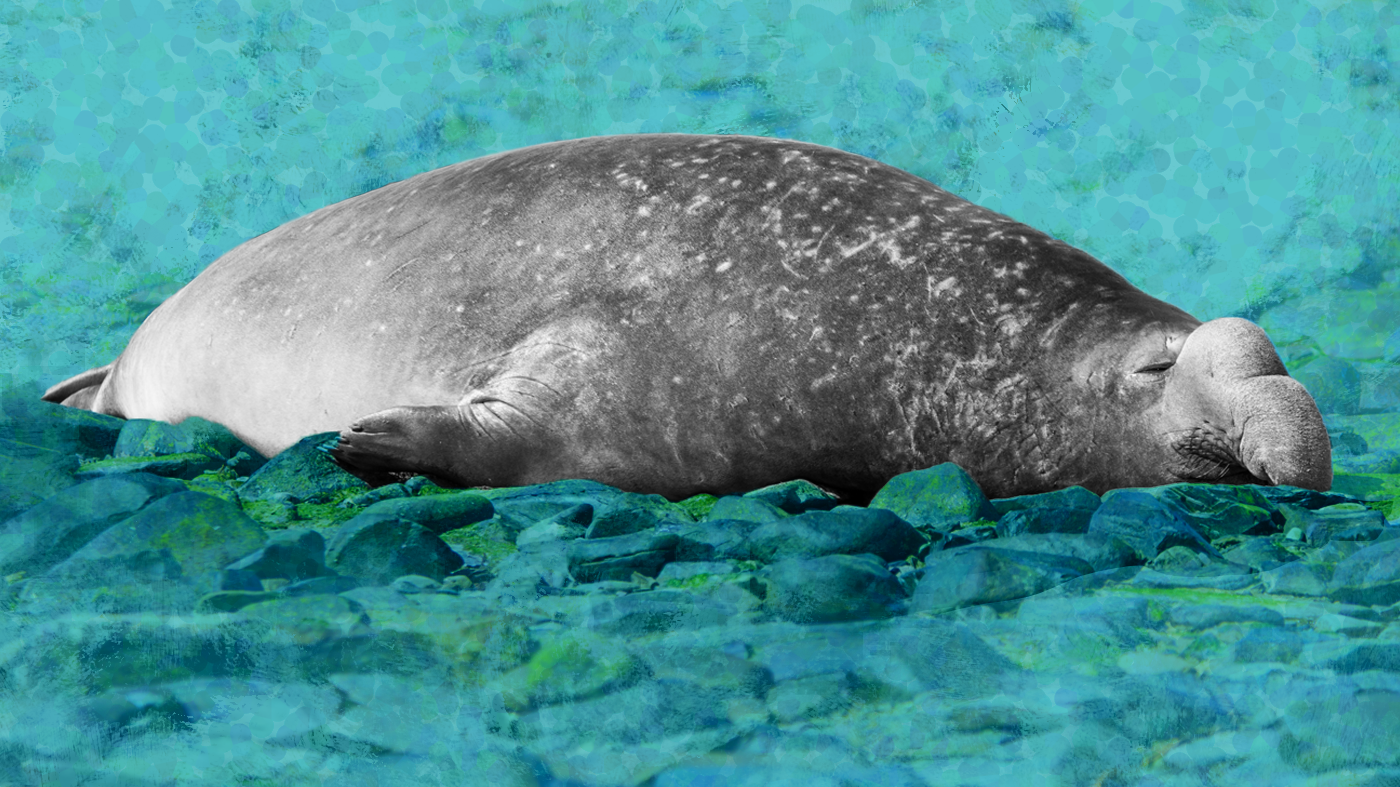By: Sammy Wang
Only five percent of the sea has been explored and marked by humans. Even though the ocean makes up 71% of the earth’s surface, there is so much undiscovered in the sea. This means that so many undiscovered ecosystems, habitats, and animals are unknown to humans.
There are many predators lurking around the vast ocean, and one animal in particular, the Northern Elephant Seal, has many predators, like the Killer Whales, Leopard Seals, and some large sharks
These predators are also why the seals only come up to the surface to breathe a couple of times between 10-30 minutes before diving back into the ocean.
These seals swim at sea for months at a time, only taking short breaks on shore from time to time. So with all this moving around, researchers have pondered how these animals get their beauty sleep.
So, to find the answer, Jessica Kendall-Bar, a marine mammals researcher at the University of California, San Diego, and her team attached special tracking caps on two Northern Elephant Seals and released them into the ocean.
“It’s important to map these extremes of [sleep behavior] across the animal kingdom,” Kendall-Bar said.
The device attached to the seals recorded the activity of their brain waves.
The first sign of the seal’s sleeping routine began when one of them dived 60-100 meters below the surface. The seal then relaxed and kept itself upright before slumbering off. But after five to ten minutes, it woke up and swam back to the surface for air.
Knowing how seals move during sleep, Kendall-Bar’s team began looking into another group of Northern Elephant Seals with tracking tags attached to them. They could see which seals were napping with the data from the previous Elephant Seals.
With the data they gathered from all the Elephant Seals, the researchers have discovered that these animals only sleep around two hours per day in the sea, but this doesn’t mean that they are always short on sleep though! When they come to shore to rest, mate, or molt, they can sleep up to 11 hours.
Kendall Bar’s group has also found similar behavior with different animals. One example would be the Frigate Birds who fall asleep while flying over the ocean.
While there are similarities, researchers found the Elephant Seals to be paralyzed in their sleep (REM sleep) without half of the brain awake.
Sleeping with half of the brain awake helps marine animals like Dolphins, Fur Seals, and Sea Lions look out for predators, but the elephant seal completely shuts down its brain when sleeping.
“They’re shutting off both halves of their brain completely and leaving themselves vulnerable,” Kendall-Bar said.
So even though the seals take such short naps in the ocean, it’s a reasonable decisions they do not get eaten by hungry predators, especially with their brains completely asleep. With time, maybe these seals can help us figure out more about the unknown in the ocean!
Sources:
https://www.google.com/url?sa=t&rct=j&q=&esrc=s&source=web&cd=&ved=2ahUKEwi7xvj-gKuAAxVTOEQIHVgKCWMQFnoECB0QAw&url=https%3A%2F%2Foceanliteracy.unesco.org%2Focean-exploration%2F%23%3A~%3Atext%3DIn%2520fact%252C%2520most%2520of%2520the%2Cits%2520depths%252C%2520are%2520still%2520unknown.&usg=AOvVaw3BYQl-wXq9J-ZgvUl-F_Sa&opi=89978449
Google: Elephant Seal











